
Senior staff
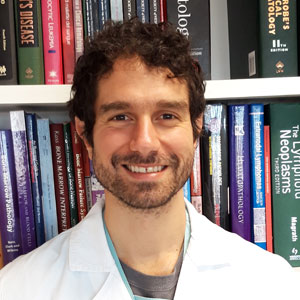
Lorenzo Brunetti
lorenzo.brunetti@unipg.it
+39 075 578 2402
Expert in the field of gene editing in normal and malignant hematopoietic cells. His research is focused on new CRISPR/Cas9 technologies to answer relevant biological questions and uncover new therapeutic targets in NPM1-mutated acute leukemias.

Paolo Sportoletti
paolo.sportoletti@unipg.it
+39 075 578 2447
Taking advantage of his strong expertise with leukemia mouse work, he will oversee studies aimed to characterize the NPM1 mutant mice. He will coordinate in vivo research efforts to analyze cooperating mutations and therapeutic targets critical for NPM1 driven acute myeloid leukemia.

Associate Professor in Surgical Pathology. Strong expertise in hematopathology. He will employ his experience in immunohistochemical and morphology techniques to diagnose myeloid and lymphoid neoplasia on Formalin-Fixed Paraffin-Embedded samples

The research is focused on improving therapy of NPM1 mutated AML by the development of novel mice models to investigate how NPM1 mutations cooperate with FLT3-ITD and DNMT3A mutations in promoting AML. The methodology applied is “in vivo” manipulation and treatment of animals, molecular biology and cytometry techniques.
Research staff
Postdoc

The aim of the project is to unravel novel interactors of NPM1 in order to improve the therapy of NPM1 mutated AML. To reach this goal, the interactome of NPM1 is under Mass spectrometry analysis. Moreover, co-IPs and immunolocalizations in optical, confocal and electron microscopy are being performed to identify proteins co-localizing with NPM1 that may serve as possible novel therapeutic targets.
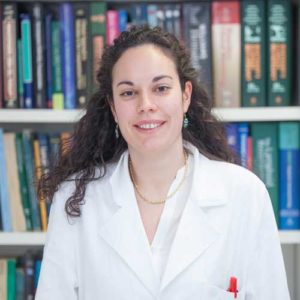
The main goal of this project is to provide a possible mechanistic link between pre-mRNA processing defects and the pathogenesis of NPM1-mutant AML. Identification of aberrant RNA splicing events will provide a novel mechanism through which NPM1-mutant can induce leukemogenesis and will represent a novel therapeutic target for this pathological condition.
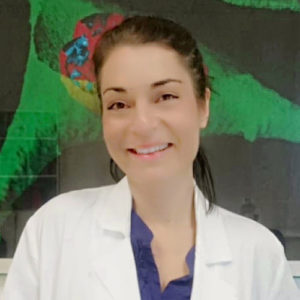
The aim of her research is to unravel the mechanisms underlying NPM1 –DNMT3a cooperation and the functional significance of other specific NPM1 interactions. She will also focus on the epigenetic effects of NPM1 mutations and their role in AML development. Chromatin rearrangements studies and protein interactions techniques will be implied to further dissect the AML pathogenesis and find new therapeutic strategies.
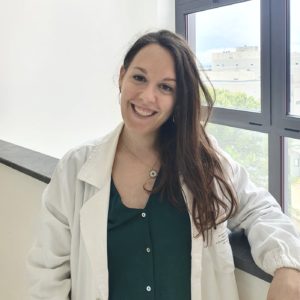
The main aim of the project is to investigate the feasibility and effectiveness of an immunotherapeutical approach for the treatment of NPM1-FLT3-mutant AML. This study, both in vivo and in vitro, will allow a better understanding of the role of the tumor microenvironment in promoting AML pathogenesis and resistance to standard therapeutical approaches. Furthermore, it will be investigated how to exploit immunomodulatory drugs, such as checkpoint inhibitors, to stimulate the immune system in order to eradicate NPM1-FLT3-mutant-leukemic cells.
PhD students

The research activities are focused on the characterization of novel mice models to study the cooperation of FLT3-ITD and DNMT3A mutations, together with NPM1 mutations, in promoting AML. The final aim of the project is to find new pharmacological therapies by applying molecular biology techniques, such as RT-PCR, PCR and Western blot, performing “in vivo” treatments of animals and developing “in vitro” assays.

The aim of the project is to study changes in the proteome and transcriptome associated with specific mutations and pharmacological treatments in AML. For this purpose, bioinformatics analysis is used to identify clusters of genes and proteins differentially expressed and possibly involved in different pathways.
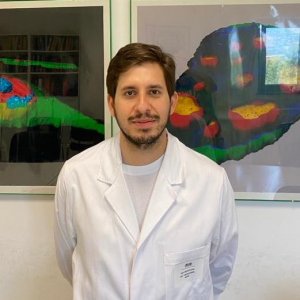
The aim of the project is to dissect the bone marrow microenvironment composition throughout NPM1-mutated leukemogenesis. To this end, validated mouse models will be used, together with ex vivo and in vitro functional approaches, in order to understand how mutant NPM1 may influence hematopoietic cell identity in the context of the leukemia – corrupted “niche”, and act cell-extrinsically to feed tumor immune evasion pathways in the bone marrow. The final goal is to translate such basic mechanisms into novel immune-therapeutic targets for leukemia eradication.
Other Scientific Collaborators
Lab technicians

Barbara Bigerna

Alessia Tabarrini

Roberta Pacini
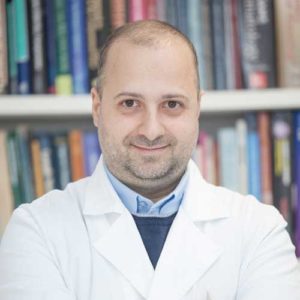
Activities carried out in the research project: automated immunohistochemical techniques and antigen unmasking, slides staining, cell counting with optical microscope and cytocentrifugations (cytospins), processing of human and murine biological samples (fixation and inclusion in paraffin).
